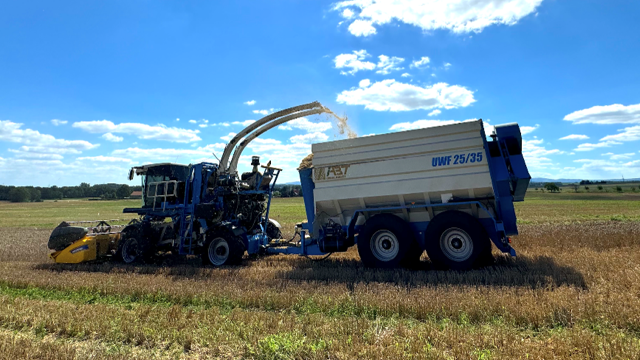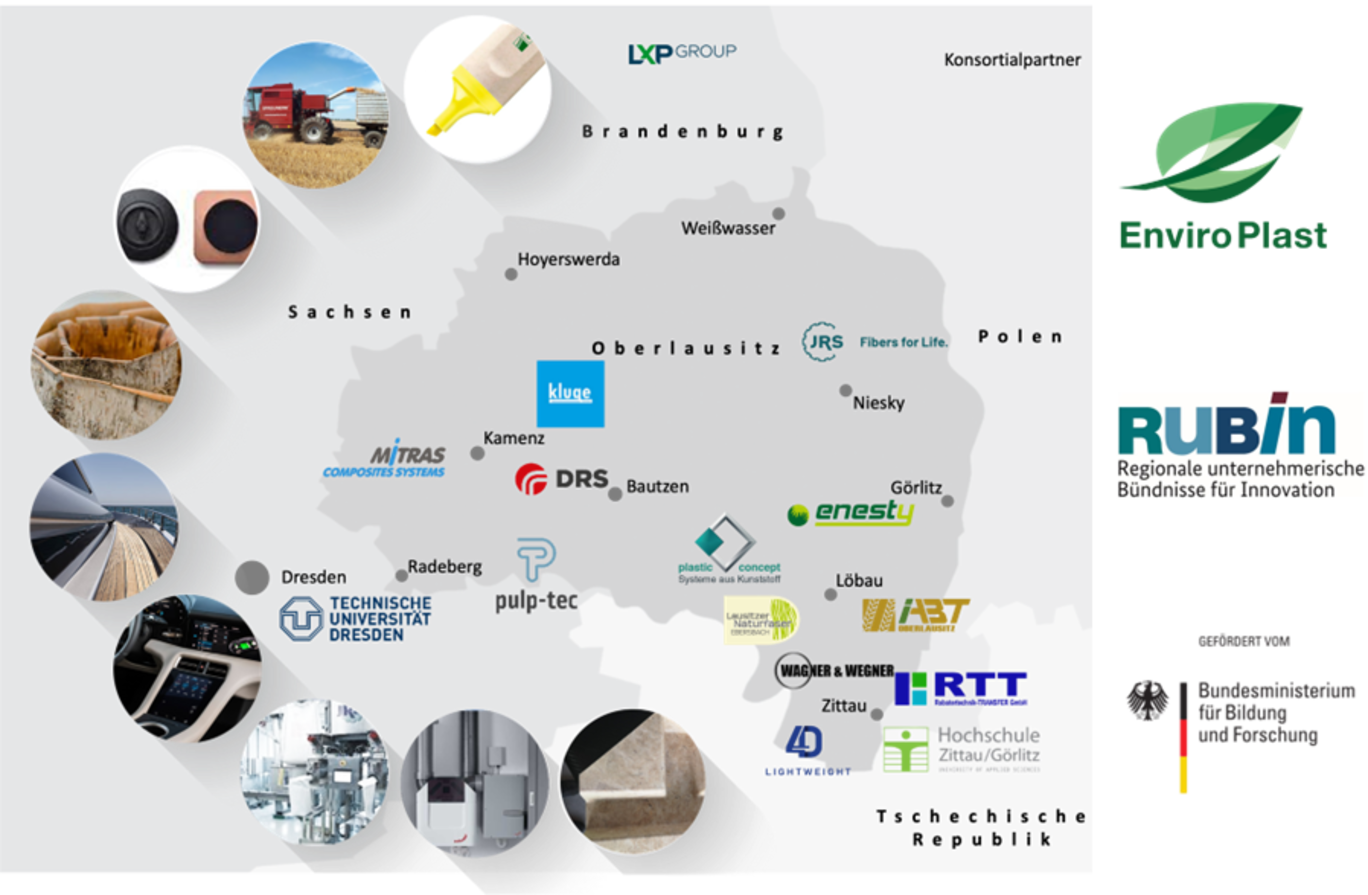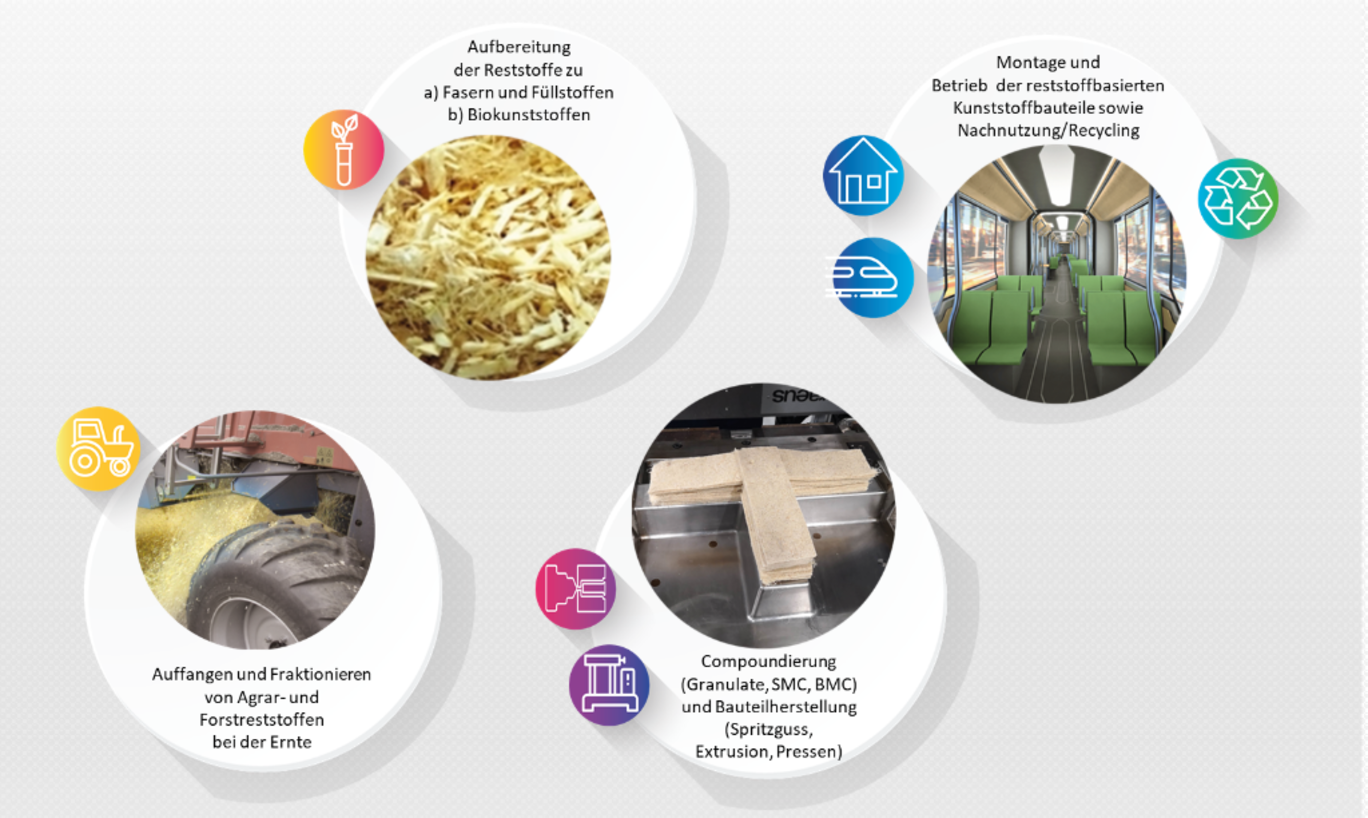The RUBIN alliance EnviroPlast supplies sustainable plastic parts made from biogenic waste materials for the environmentally friendly future of the automotive and construction industries


The RUBIN alliance EnviroPlast makes a significant contribution to the production and use of sustainable technical plastic parts from biogenic residues. The interdisciplinary consortium consists of 15 funded and 10 associated partners from industry and science, mostly from Upper Lusatia, and covers the entire spectrum of bioeconomic value creation from harvesting to application and recycling.
The aim of EnviroPlast is to use biogenic by-products and residues, in particular fibrous materials such as sawn timber, cereal straw, chaff and green waste, specifically as raw materials for the production of biopolymers and as reinforcing and filling materials. In Germany, up to 200 million tons of residual materials containing fibres are produced every year, which have so far remained largely unused or have only been used to a limited extent. EnviroPlast wants to tackle this challenge and reduce the amount of additional agricultural land required for plastics production by using biogenic residues. This could significantly improve the conservation of resources and have a positive impact on the plastics industry'scarbon footprint.
Currently, the demand for plastics in Germany from conventional agricultural products would require an enormous amount of land, which would have a significant impact on food production. EnviroPlast offers a solution that combines sustainability with economic efficiency without significantly changing existing economic processes.

Another central goal of the joint project is the use of residual materials containing fibers as fillers in plastics. This reduces the amount of plastic required and the use of synthetic fibers and additives, which not only reduces thecarbon footprint of the manufacturing companies, but also saves material costs.
EnviroPlast takes a holistic approach to ensure high quality plastic parts made from biogenic, regional waste materials that meet the specific requirements of the automotive and construction industries. With almost 100 plastics processing companies, Lusatia in Saxony offers optimal conditions for the project's objectives, as the region has a high density of companies in this sector and at the same time has future-oriented agricultural and forestry operations to ensure the supply of raw materials.
In addition, several OEMs are involved in the project as associated partners to ensure that the research results can be quickly put into practice.
The alliance is being funded for three years as part of the "RUBIN - Regional Entrepreneurial Alliances for Innovation" program of the Federal Ministry of Education and Research (BMBF) with a total of approx. 10.3 million euros.
Mr. Ronald Wolf-Wagenführ
E-Mail: info(at)sksconsulting.de
